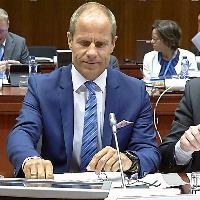(BRUSSELS) – EU finance ministers at their Council meeting Wednesday approved an action plan to address the problem of non-performing loans in the banking sector, to reduce stocks and prevent their future emergence.
The plan outlines a mix of policy actions to help reduce stocks of NPLs, which remain at high levels within the EU, and to prevent their future emergence.
“Non-performing loans are a problem for the banking industry for which solutions have until now been mainly defined at the national level”, said Estonia’s finance minister Toomas Toniste, for the EU presidency: “We need to free up these resources, make our financial system more resilient and prevent the re-emergence of NPL issues in the future.”
On the basis of an expert report, the Council highlighted the need for action as regards:
- bank supervision
- the reform of insolvency and debt recovery frameworks
- the development of secondary markets for NPLs
- restructuring of the banking industry.
The Council has agreed to revert to the issue regularly.
Also on the ministers’ agenda was the Mid-term review of the EU’s capital markets union, with ministers adopting conclusions on the Commission’s review of the EU’s capital markets union action plan.
The Council renewed its commitment to the action plan, which is aimed at securing a fully-fledged capital markets union by the end of 2019. It supported a number of priority initiatives set out by the Commission.
It highlighted good progress made so far, with nearly two thirds of actions already delivered. However a number of challenges have emerged, and with them a need to strengthen the plan.
“The European economy is steadily improving. What we now need most of all is more investment. That’s why the capital markets union is top of the Estonian agenda”, Mr Toniste said. “To ensure sustainable economic growth in the longer term, it is essential to broaden the range of sources available for financing, in particular for young and innovative companies.”
Ministers also discussed the priorities of the Estonian presidency as concerns economic and financial affairs.
The focus of activities until the end of 2017 will be:
- the EU’s banking union and capital markets union
- taxation, with a focus on the digital economy and modernising VAT
- the EU budget
- economic governance
- the future and the financing of the EU and its economic and monetary union.
Council conclusions on Action plan to tackle non-performing loans in Europe
Capital markets union: Council agrees on action plan adjustments
Economic, employment and fiscal policies: 2017 country-specific recommendations


